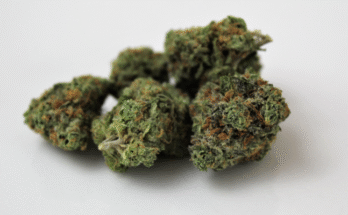Despite reports that the story was a hoax, a German cannabis company has confirmed it is in talks with the Taliban about setting up a cannabis production facility in Afghanistan.
However, the deal can’t be completed until the Taliban receives international recognition.
The story began in November when the Afghan Ministry of Interior Affairs’ Twitter account announced that a deal had been struck with a company called Cpharm to set up a “hashish production” facility.
Initial press reports identified Cpharm as an Australia company, although they soon released a statement denying involvement in the deal. It was then assumed by most that the Taliban were simply ‘trolling’ the world.
However, in actuality, there is a German company called Cpharm that has since come out and confirmed their involvement with the project. Cpharm have also released a detailed report of their plans in Afghanistan.
International approval needed
A spokesperson from Cpharm told MarijuanaMoment that in order to proceed with the facility, it is essential for the current government to receive approval from the United Nations’s International Narcotics Control Board (INCB).
It was also revealed that intergovernmental negotiations between the current Afghan Government and the importing countries are underway.
According to MarijuanaMoment, Cpharm has been trying to set up operations in Afghanistan since 2017 when medical cannabis was legalised, but found the country’s previous administration corrupt and “in bed with criminals who wanted to keep a monopoly on illicit cultivation.”
While the Taliban regime has a reputation for treating drug users extremely harshly, it would seem that they are now open to an extraction facility in the country, supplied by locally grown cannabis from local farmers, and exporting the products to foreign markets.
Rich history and hash culture

Afghanistan has a rich history with cannabis. In fact, it’s been cultivated there for centuries and there remains a strong culture around the social smoking of hashish – a product made from the resinous trichomes of cannabis flower.
Cannabis was made illegal in Afghanistan in the 1970s, but the country was still named the world’s top cannabis producer in 2010 by the United Nations.
Potential
Cpharm says that the project will allow the Taliban to reduce drug trafficking significantly by offering farnese legal alternative paths of trade. They believe Afghanistan has the potential to become the world’s largest agricultural cannabis producer.
Their presentation states: “The objective is to build an ecological, sustainable value chain in agriculture and pharmaceutical industry in the Islamic Emirate of Afghanistan to provide a highly profitable and significant income alternative to the current No. 1 and 2 of the Afghan economy, mining and illegal poppy and cannabis industries for the international drug market.
“Due to the geographical location of Afghanistan, a 4 times larger medical cannabis harvest can be brought in per [metres squared] than, for example, in Morocco, the largest cannabis growing area in the world.”
However, the company has come in for some criticism for its decision to pursue a deal with the Taliban. The main concern is that the project will not benefit the local economy, only outside investors and the Taliban regime itself.




